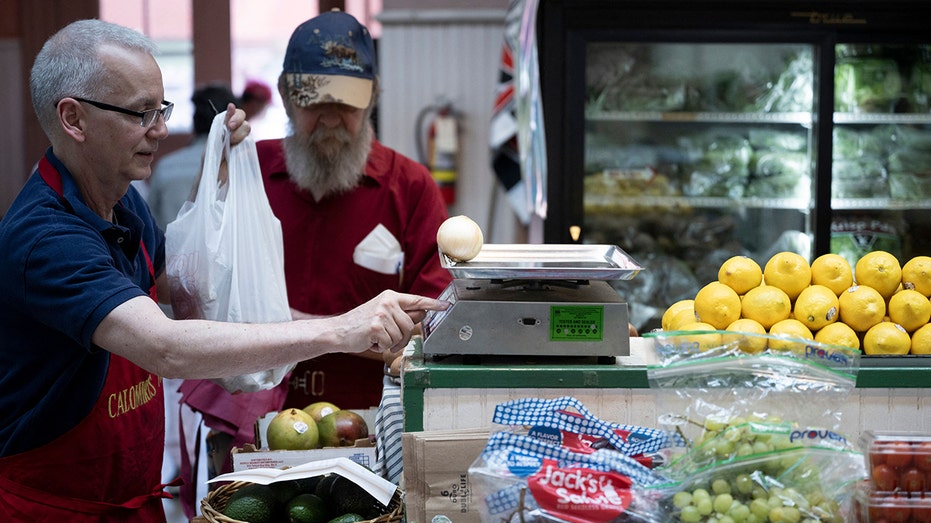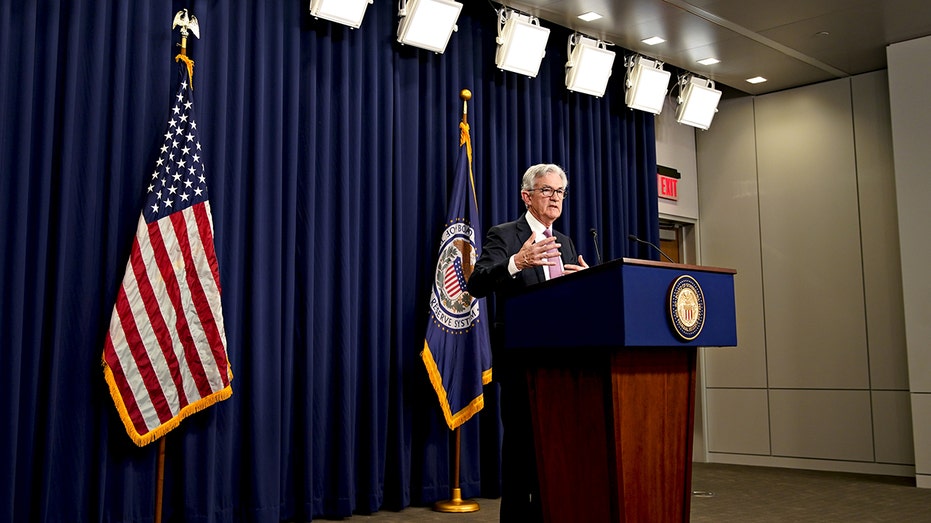Inflation surged more than expected in September as prices remain stubbornly high
Consumer price index continues to hover near a record-high, keeping pressure on the Fed
Inflation, rising gas prices could play major role in 2022 midterms
Congressmen Bryan Steil and Jeff Van Drew evaluate how the Biden administration has handled America's economy and energy supply on 'The Evening Edit.'
Inflation ran hotter than expected in September as persistent prices continued to squeeze U.S. households and worsen a political headache for President Biden with just one month until midterm elections.
The Labor Department said Thursday that the consumer price index, a broad measure of the price for everyday goods including gasoline, groceries and rents, rose 0.4% in September from the previous month. Prices climbed 8.2% on an annual basis.
Those figures were both higher than the 8.1% headline figure and 0.2% monthly increase forecast by Refinitiv economists, a worrisome sign for the Federal Reserve as it seeks to cool price gains and tame consumer demand with an aggressive interest rate hike campaign.
In an even more concerning development that suggests underlying inflationary pressures in the economy remain strong, core prices – which strip out the more volatile measurements of food and energy – climbed 0.6% in September from the previous month. From the same time last year, core prices jumped 6.6%, the fastest since 1982.
SOCIAL SECURITY RECIPIENTS TO SEE BIGGEST COLA INCREASE SINCE 1981
Economists anticipated that core prices would climb 0.5% on a monthly basis and 6.5% from the previous year.
Stocks tanked on the surprisingly hot report, with the Dow Jones Industrial Average down more than 500 points. The S&P 500 tumbled 2.10% and the Nasdaq Composite slipped 2.80%.
Scorching-hot inflation has created severe financial pressures for most U.S. households, which are forced to pay more for everyday necessities like food and rent. The burden is disproportionately borne by low-income Americans, whose already-stretched paychecks are heavily impacted by price fluctuations.
| Ticker | Security | Last | Change | Change % |
|---|---|---|---|---|
| I:DJI | DOW JONES AVERAGES | 50135.87 | +20.20 | +0.04% |
| I:COMP | NASDAQ COMPOSITE INDEX | 23238.66991 | +207.46 | +0.90% |
| SP500 | S&P 500 | 6964.82 | +32.52 | +0.47% |
Although households continued to see some reprieve last month in the form of lower gas prices, which fell 4.9% in September from the previous month, other price gains proved persistent and stubbornly high.
THE FED'S WAR ON INFLATION COULD COST 1M JOBS
The cost of groceries climbed 0.7%, putting the 12-month increase at 13.0%. Consumers paid more for items like cereal, chicken, milk and fresh vegetables.

Thomas Calomiris, a third generation produce vendor, weighs an onion at Eastern Market as the US struggles with rising inflation May 20, 2022, in Washington, D.C. (Photo by BRENDAN SMIALOWSKI/AFP via Getty Images / Getty Images)
Shelter costs, which account for about 40% of the core inflation increase, climbed 6.6% over the past year, the fastest since February 1991.
Rent costs jumped 0.8% over the month and 6.7% on an annual basis. Rising rents are a concerning development because higher housing costs most directly and acutely affect household budgets. Another data point that measures how much homeowners would pay in equivalent rent if they had not bought their home, climbed 0.8% in September from the previous month.
AMERICANS' INFLATION EXPECTATIONS DROPPED AGAIN IN SEPTEMBER, NEW YORK FED SAYS
"The composition of the inflation reading is perhaps even more worrisome than the overall number," said Seema Shah, the chief global strategist at Principal Asset Management. "Increases in shelter and medical care indices, the stickiest segments of the CPI basket, confirm that price pressures are extremely stubborn and will not go down without a Fed fight."
With food and shelter costs continuing to march higher, U.S. households are facing increased financial pressure. Average hourly earnings actually declined 0.1% in September on an inflation-adjusted basis. Compared to the previous year, earnings are down 3%, according to a separate BLS report.
Rampant inflation and the rapid dissolution of Americans' buying power have become major political liabilities for Biden ahead of the November midterm elections, in which Democrats are expected to lose their already razor-thin majorities. Surveys show that Americans see inflation as the biggest problem facing the country – and that many households blame Biden for the price spike.

Jerome Powell, chairman of the U.S. Federal Reserve, speaks during a news conference following a Federal Open Market Committee meeting in Washington, D.C., U.S., on Wednesday, May 4, 2022. (Photographer: Al Drago/Bloomberg via Getty Images / Getty Images)
The president has blamed higher prices on greedy corporations, supply chain bottlenecks and other pandemic-induced disruptions in the economy, as well as the Russian war in Ukraine. Most economists now agree that unprecedented levels of government stimulus and a stronger-than-expected recovery from the pandemic have also played at least some role in exacerbating the price spike.
The report will also have significant implications for the Federal Reserve, which has embarked on one of the fastest tightening paths in decades. Policymakers have already approved five straight rate hikes, including three back-to-back 75-basis-point increases, and have shown no signs of slowing down.
Following the hotter-than-expected September inflation report, the central bank is widely expected to approve a fourth straight 75-basis-point increase when policymakers next meet at the beginning of November.
CLICK HERE TO READ MORE ON FOX BUSINESS
"CPI came in hot, which virtually guarantees the Fed will hike 75 basis points next month, and at least 50 in December," said Robert Frick, corporate economist with Navy Federal Credit Union. "And we need to brace for more bad news in October and November, as rising oil prices are likely to swing again from reducing to increasing inflation."





















